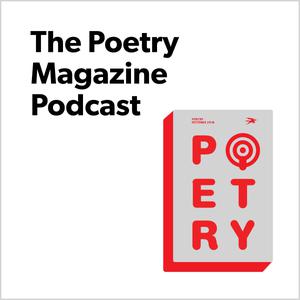
The Poetry Magazine Podcast
Poetry Foundation
The Poetry Magazine Podcast takes listeners on an audio journey into and beyond the pages of Poetry. Hear poets share the surprises, confusions, and desires that keep them writing. Hosted by Cindy Juyoung Ok and produced by Rachel James.
- 38 minutes 20 secondsKiki Petrosino and Cindy Juyoung Ok on Crestfallenness, Cookbooks, and More
This week, Cindy Juyoung Ok speaks with Kiki Petrosino, who has published five elegant and remarkable books, all with Sarabande, including the memoir Bright (2022) and the poetry collection White Blood: A Lyric of Virginia (2020). Petrosino speaks about crestfallenness and her new essay in the October issue of Poetry, “On Crestfallenness: A Pilgrim, Not a Tractor,” which appeared as part of the Hard Feelings series. She also talks about having her mother join her for her research, teaching across languages, and her love of cookbooks and the stories they tell.
With thanks to Danelle Cadena Deulen for the clip of her reading Brigit Pegeen Kelly’s poem “Closing Time; Iskandariya” on the podcast Lit from the Basement. And to Sarabande Books, Inc. for permission to include Kiki Petrosino’s poem “Pergatorio” from Witch Wife (2020).
24 October 2023, 3:02 pm - 56 minutes 7 secondsKimiko Hahn and Cindy Juyoung Ok on Mentoring Your Younger Poet-Self and More
This week, Cindy Juyoung Ok speaks with Kimiko Hahn, who won the 2023 Ruth Lilly Poetry Prize from the Poetry Foundation, and who is featured in the October 2023 issue of Poetry. Hahn talks about how her work has changed over the years, including her current love of form, and how she’s been mentoring her younger self while putting together her forthcoming new and selected, The Ghost Forest (W.W. Norton). She also discusses being wrong about Elizabeth Bishop, not getting an MFA, and what it was like studying at the University of Iowa as an undergraduate while the graduate program was filled with now-canonical poets like Rita Dove, Jorie Graham, Tess Gallagher, and others. Hahn shares two of her incredible poems from the October issue with listeners.
10 October 2023, 6:03 am - 41 minutes 36 secondsCathy Park Hong and Cindy Juyoung Ok on Shit Moms and More
This week, Cindy Juyong Ok talks with Cathy Park Hong, who has published three volumes of poetry and the collection of essays Minor Feelings: An Asian American Reckoning, which was a finalist for the Pulitzer Prize. Hong introduces us to a new selection from “Spring and All,” featured in the September 2023 issue of Poetry. She discusses how feeling like a “shit mom” during the early days of the pandemic has influenced her new writing, as did the work of other artists and writers who address “failing” at motherhood, like that of visual artist Tala Madani and her “Shit Moms” series.
26 September 2023, 3:56 pm - 46 minutes 32 secondsLena Khalaf Tuffaha and Cindy Juyoung Ok on the Renowned and Rebellious Palestinian Poet Zakaria Mohammed
On this week’s episode, Cindy Juyoung Ok speaks with poet, essayist, and translator Lena Khalaf Tuffaha about the life and work of the renowned Palestinian poet and writer Zakaria Mohammed. Born in Nablus, Palestine, Mohammed was a freelance journalist, editor, and poet who authored nine volumes of poetry. In 1994, after twenty-five years in exile, he returned to his homeland to live in Ramallah where he recently died at the age of seventy-three. Ok and Khalaf Tuffaha discuss Mohammed’s rebelliousness, his democratizing practice of posting early drafts of his poems to Facebook, and how he approached writing in the shadow of Mahmoud Darwish. They also talk about grief, the politics of translation, and the always tricky task of composing an email. Finally, Khalaf Tuffaha treats us to some of Mohammed’s poems in Arabic and English translation that appear in the September 2023 issue of Poetry.
12 September 2023, 6:03 am - 1 hour 38 secondsKevin Young and Cindy Juyoung Ok on All the Things Poetry Does
This week, Cindy Juyoung Ok speaks with Kevin Young, who has authored or edited over twenty books including the poetry collection Stones (Knopf, 2021) and the nonfiction investigation Bunk: The Rise of Hoaxes, Humbug, Plagiarists, Phonies, Post-Facts, and Fake News (Graywolf Press, 2017). In addition to directing the Smithsonian’s National Museum of African American History and Culture, Young is also the poetry editor at the New Yorker, so perhaps it’s not surprising that the conversation today focuses on all that poetry does. As Young says: “It does the most important things … It’s waiting for you.” We’ll also hear two new gorgeous poems by Young from the July/August 2023 issue of Poetry: “The Stair” (4:20) and “Diptych” (38:06).
29 August 2023, 6:03 am - 52 minutes 27 secondsRichie Hofmann and Cindy Juyoung Ok on Erotic Turmoil and More
This week, Cindy Juyoung Ok talks with Richie Hofmann, whose latest book is A Hundred Lovers (Knopf, 2022), about the ancient tale of Hermias of Iasos which informs Hofmann’s poem “Dolphin.” The poem appears in the July/August issue of Poetry alongside “Breed Me,” and we’ll hear both on today’s episode. Hofmann and Ok reveal they are both “Cavafy heads,” and Hofmann discusses the influence of Robert Mapplethorpe on his poems, as well as why lineation is one of the “erotic touchstones” of poetry.
15 August 2023, 2:28 pm - 55 minutes 36 secondstorrin a. greathouse and Cindy Juyoung Ok on Form as Open-Source Software and Being Loud on the Page
This week, Cindy Juyoung Ok talks with torrin a. greathouse, a transgender cripple-punk poet and essayist who is the author of the forthcoming DEED (Wesleyan University Press), as well as Wound from the Mouth of a Wound (Milkweed Editions, 2020). Ok and greathouse get into poetic forms—which they liken to open-source software—particularly the beloved “burning haibun” form that greathouse created and that she wrote about for Poetry’s “Not Too Hard to Master” series. The essay appears in the July/August issue of Poetry alongside their Springsteen-inspired burning haibun, “Dancing in the Dark,” which greathouse reads on the podcast. They also interrogate the anti-trans rhetoric and language of radical white feminist poets, and greathouse reads “There’s No Trace of the Word ‘Transgender’ in Adrienne Rich’s Biography,” which previously appeared in Poetry.
1 August 2023, 6:03 am - 59 minutes 59 secondsDouglas Kearney and Cindy Juyoung Ok on Scrabble, Spite, and “Dintelligibility”
This week, Cindy Juyoung Ok speaks with Douglas Kearney, who joins from Saint Paul, Minnesota. Kearney is the author of eight books of poetry, prose, and libretti, and his poems are often highly distinctive both on and off the page. Today’s conversation begins with spite and Scrabble, which Kearney writes about in his new essay in the July/August issue of Poetry, a continuation of the “Hard Feelings” series. They also talk about the changing topographies in Kearney’s work, the “dintelligibility” of his new poems, and the vital importance of discomfort.
Thanks to Douglas Kearney and Wave Books for permission to include Kearney’s reading of “Sand Fire (or The Pool, 2016)” from his book Sho, and to Fonograf Editions for permission to include clips from Douglas Kearney and Val Jeanty’s Fodder.
18 July 2023, 6:03 am - 48 minutes 4 secondsElisa Gabbert and Cindy Juyoung Ok on Self-Pity, Death, and the Internet
This week, Cindy Juyoung Ok speaks with Elisa Gabbert, who joins us from Providence, Rhode Island. Gabbert is the author of six, soon to be seven, collections of essays and poems, including Normal Distance (Soft Skull Press, 2022) and the forthcoming Any Person Is the Only Self (Farrar, Straus and Giroux, 2024). Ok writes, “For Elisa, seemingly no field, no form, no fondness, is exempt from her thought or, lucky for us, her writing. She is a lover of surprising etymology and misunderstood quotes. She works toward clarity in play and in study.” Today, the two discuss Gabbert’s essay “On Self-Pity: Go Eat Worms,” which is part of a new series called “Hard Feelings” that makes its debut in the July/August 2023 issue of Poetry. Gabbert explains why she was excited to write a “spirited defense” of self-pity, and more.
5 July 2023, 7:14 pm - 44 minutes 33 secondsOmar Sakr and Cindy Juyoung Ok on Queer Use, Cynicism, and Falling in Love
This week, new host Cindy Juyoung Ok speaks with Omar Sakr, who joins us from Sydney, Australia. Sakr tends to the in between, writing prose and poetry, and moving between poetic and political urges, and through queerness and diasporic experience. On this episode, we spend time with a series from Sakr’s newest collection, Non-Essential Work (UQP, 2023). The series, “On Finding the Prophet Muhammad (PBUH) in Dante’s ‘Inferno,’” reflects on and challenges Canto XXVIII, in which Dante comes upon the Prophet in the eighth level of hell. You can read three poems from the series in the June 2023 issue of Poetry. We also continue our new segment, in which guests answer a question from the void, and the episode ends with a surprise visitor.
20 June 2023, 4:26 pm - 42 minutes 23 secondsDonika Kelly and Cindy Juyoung Ok on Desire Paths, Therapy, and Pleasure
This week, new host Cindy Juyoung Ok speaks with Donika Kelly. The author of two poetry collections, The Renunciations and Bestiary, Kelly teaches creative writing at the University of Iowa. Rita Dove called The Renunciations, “poetry of the highest order,” and Nikki Finney, who selected Kelly’s first book for the Cave Canem Poetry Prize, wrote, “Bestiary’s lesson is complicated and also simple. Love can be hunted down.” Using erasures or Greek myths, writing from terror and travel, Kelly never approaches an event, state, or image in only one way. Today, we hear from a new sequence of poems featured in the June issue of Poetry, and Kelly also answers a question from the void.
6 June 2023, 6:03 am - More Episodes? Get the App
Your feedback is valuable to us. Should you encounter any bugs, glitches, lack of functionality or other problems, please email us on [email protected] or join Moon.FM Telegram Group where you can talk directly to the dev team who are happy to answer any queries.
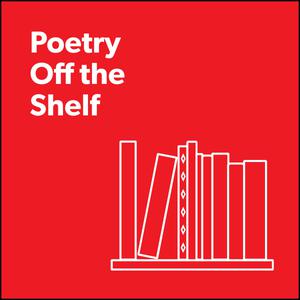 Poetry Off the Shelf
Poetry Off the Shelf
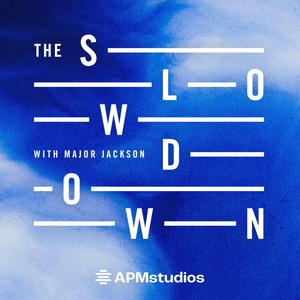 The Slowdown: Poetry & Reflection Daily
The Slowdown: Poetry & Reflection Daily
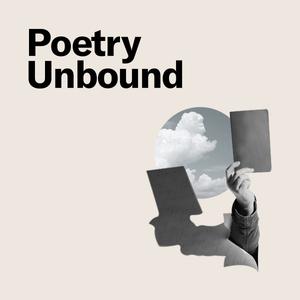 Poetry Unbound
Poetry Unbound
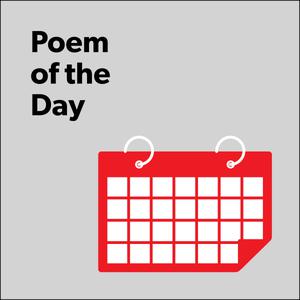 Audio Poem of the Day
Audio Poem of the Day
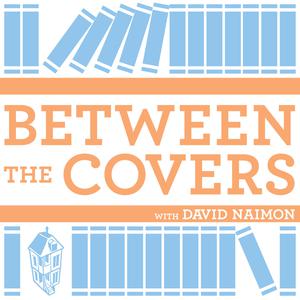 Between The Covers : Conversations with Writers in Fiction, Nonfiction & Poetry
Between The Covers : Conversations with Writers in Fiction, Nonfiction & Poetry
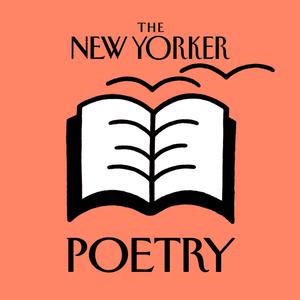 The New Yorker: Poetry
The New Yorker: Poetry